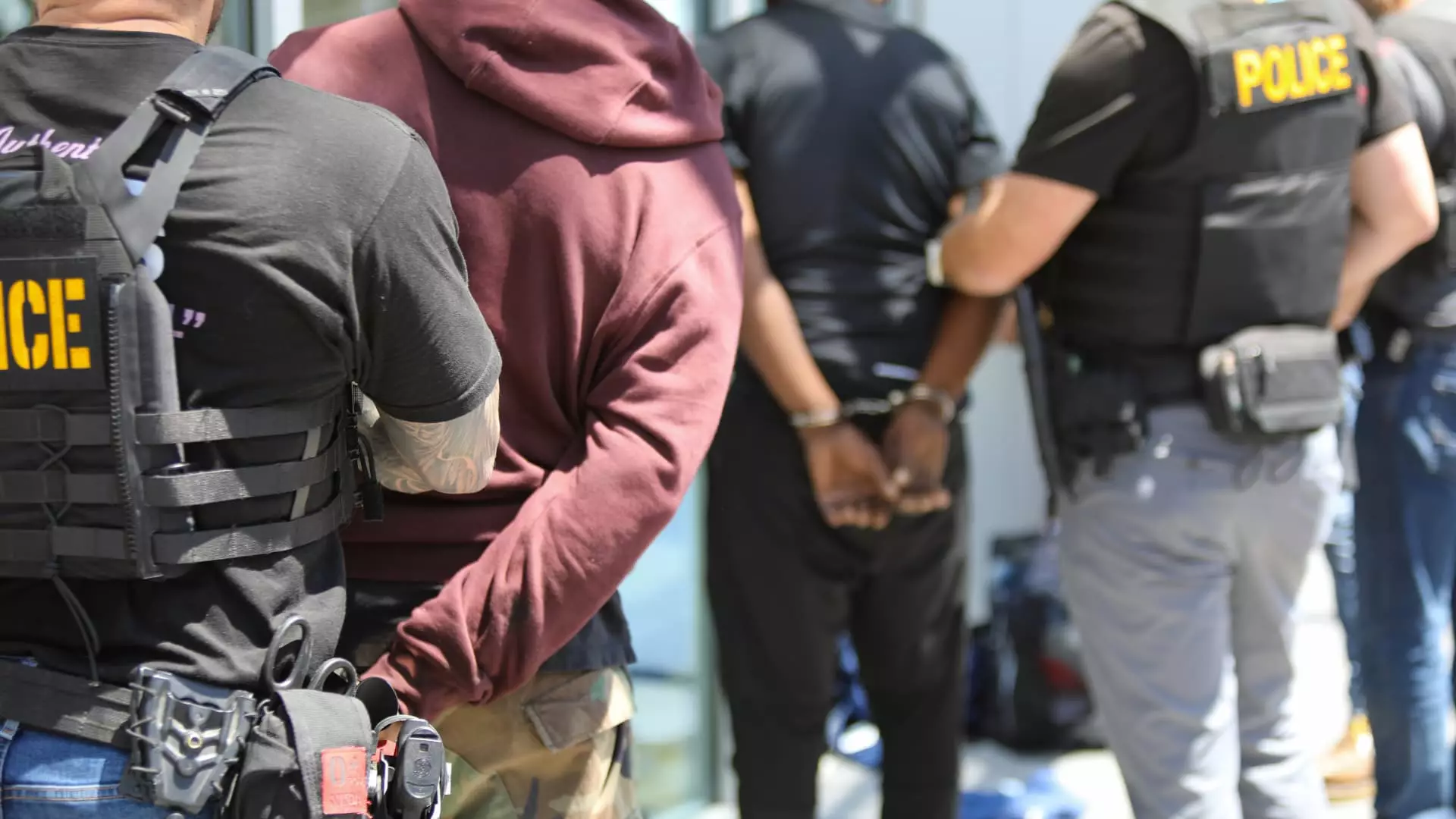In an era where retail theft has reached alarming proportions, a recent nationwide operation in the United States shines a stark light on this critical issue. Dubbed as the first coordinated crackdown on organized retail crime, it has resulted in hundreds of arrests across 28 states. This operation, spearheaded by the Cook County regional organized crime task force, involved collaboration among over 100 jurisdictions and engaged more than 30 major retailers, including household names like Home Depot, Target, and Walgreens. The sheer scale of this operation reveals a painful truth: retail crime has transformed into a well-coordinated and alarming epidemic that threatens the livelihood of countless businesses.
Cook County Sheriff Tom Dart aptly described the situation when he stated, “When you give specific focus to a crime, it reverberates.” This sentiment encapsulates the growing urgency surrounding the enforcement of laws against retail theft. With organized retail crime representing a methodical approach where groups execute high-stakes heists to resell stolen goods, it’s no wonder that businesses are feeling the impact. A staggering report from the National Retail Federation indicates that retailers experienced a 93% increase in shoplifting incidents in 2023 compared to 2019, coupled with a 90% surge in associated losses.
Legal Loopholes and Challenges
Amid this chaos, perhaps the most disheartening aspect of organized retail crime is the leniency of the legal system that often allows repeat offenders to evade justice with minimal consequences. Critics point to unnecessarily high felony thresholds, which effectively enable chronic shoplifters to continue their illicit behavior without substantial fear of repercussions. From the perspective of newly elected Cook County State’s Attorney Eileen O’Neill Burke, the matter is straightforward: accountability is critical. By lowering the felony threshold for retail theft and pursuing charges aggressively, she aims to shift the tide against this growing menace.
Prior to O’Neill Burke’s tenure, felony charges were permissible only for thefts above $1,000 or if the suspect had a troubling history of convictions. This outdated system has been vastly inadequate in responding to the current scale of organized crime, resulting in a culture of impunity. O’Neill Burke’s determination to prosecute cases exceeding $300 in stolen goods is a crucial step toward rebalancing the scales of justice. Since her appointment, there have been 1,450 felony charges filed—an indication that meaningful progress can be made when the will to act exists.
The Power of Collaboration
One of the most promising elements of the recent crackdown lies in the collaborative spirit fostered between law enforcement and the retail sector. This operation was not just a “one-and-done” approach, as stakeholders across various jurisdictions shared information and strategized in real-time. Ulta Beauty, for example, actively participated in the initiative by offering vital intelligence concerning theft incidents across nine states. This kind of teamwork is paramount to dismantling the sophisticated networks powering retail crime.
Marty Maloney from Walgreens echoed this sentiment, remarking that addressing organized retail crime remains one of the industry’s most significant challenges. Successful cases require a systemic approach that unifies law enforcement, retail businesses, and legal entities to share valuable insights. It is this synergy that stands as a powerful countermeasure against a growing crisis that often feels insurmountable.
Long-Term Solutions and Ongoing Efforts
Although the immediate outcomes of this operation are promising, it is crucial to understand that the battle against retail crime is far from over. Major retailers, recognizing the persistent threats posed by organized crime, must invest in long-term strategies. This includes advocating for stricter laws while enhancing in-store security measures and developing employee training programs focused on theft prevention.
While the public may be tempted to view retail theft as a victimless crime, it profoundly impacts communities. The rise in costs associated with theft ultimately gets passed on to consumers in the form of higher prices. Furthermore, as businesses grapple with losses, employees may face layoffs or cuts in hours, creating a ripple effect that harms local economies.
Thus, it becomes evident that combating organized retail crime requires a multifaceted, sustained response—one that not only addresses immediate concerns but also builds a resilient framework for the future. As the recent crackdown serves as a clear signal of intent, the time to act decisively against organized retail crime is now. The stakes are high.

